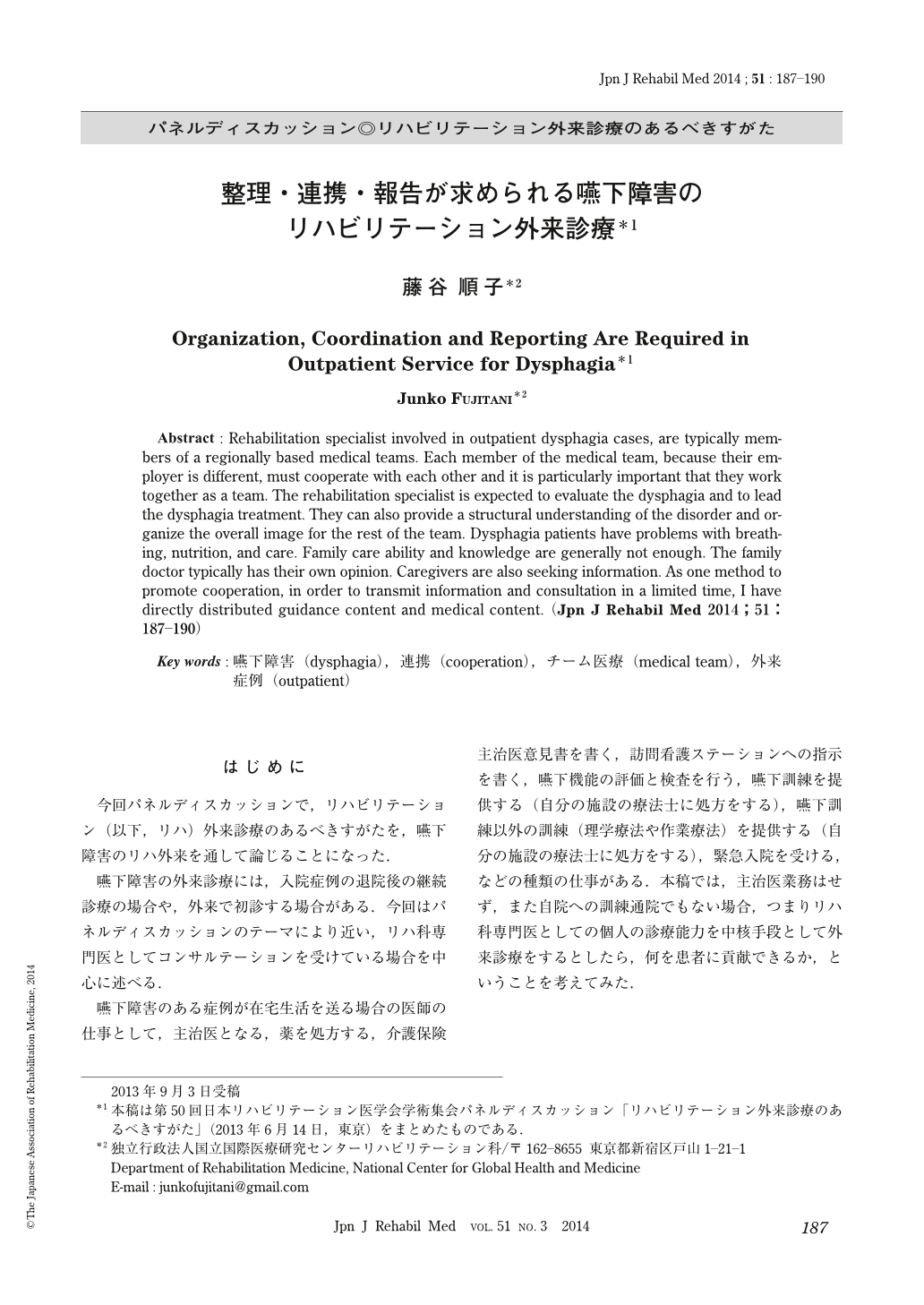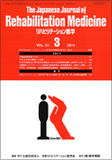Japanese
English
- 販売していません
- Abstract 文献概要
- 1ページ目 Look Inside
- 参考文献 Reference
はじめに
今回パネルディスカッションで,リハビリテーション(以下,リハ)外来診療のあるべきすがたを,嚥下障害のリハ外来を通して論じることになった.
嚥下障害の外来診療には,入院症例の退院後の継続診療の場合や,外来で初診する場合がある.今回はパネルディスカッションのテーマにより近い,リハ科専門医としてコンサルテーションを受けている場合を中心に述べる.
嚥下障害のある症例が在宅生活を送る場合の医師の仕事として,主治医となる,薬を処方する,介護保険主治医意見書を書く,訪問看護ステーションへの指示を書く,嚥下機能の評価と検査を行う,嚥下訓練を提供する(自分の施設の療法士に処方をする),嚥下訓練以外の訓練(理学療法や作業療法)を提供する(自分の施設の療法士に処方をする),緊急入院を受ける,などの種類の仕事がある.本稿では,主治医業務はせず,また自院への訓練通院でもない場合,つまりリハ科専門医としての個人の診療能力を中核手段として外来診療をするとしたら,何を患者に貢献できるか,ということを考えてみた.
Abstract : Rehabilitation specialist involved in outpatient dysphagia cases, are typically members of a regionally based medical teams. Each member of the medical team, because their employer is different, must cooperate with each other and it is particularly important that they work together as a team. The rehabilitation specialist is expected to evaluate the dysphagia and to lead the dysphagia treatment. They can also provide a structural understanding of the disorder and organize the overall image for the rest of the team. Dysphagia patients have problems with breathing, nutrition, and care. Family care ability and knowledge are generally not enough. The family doctor typically has their own opinion. Caregivers are also seeking information. As one method to promote cooperation, in order to transmit information and consultation in a limited time, I have directly distributed guidance content and medical content.

Copyright © 2014, The Japanese Association of Rehabilitation Medicine. All rights reserved.


